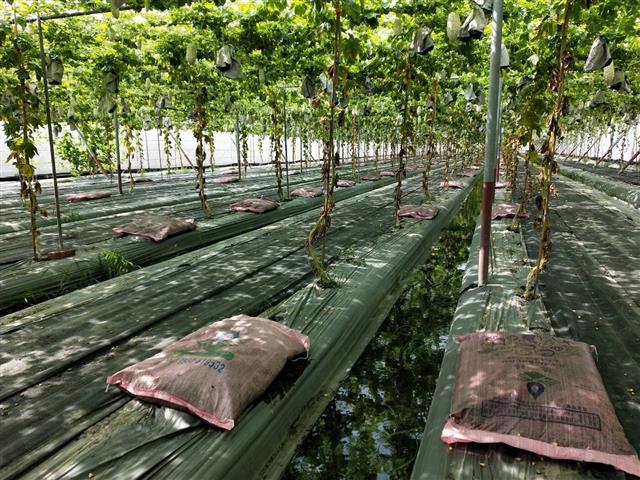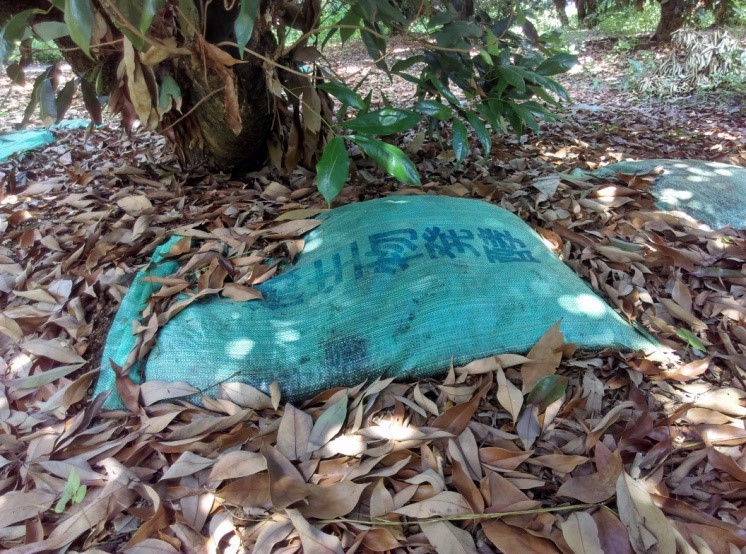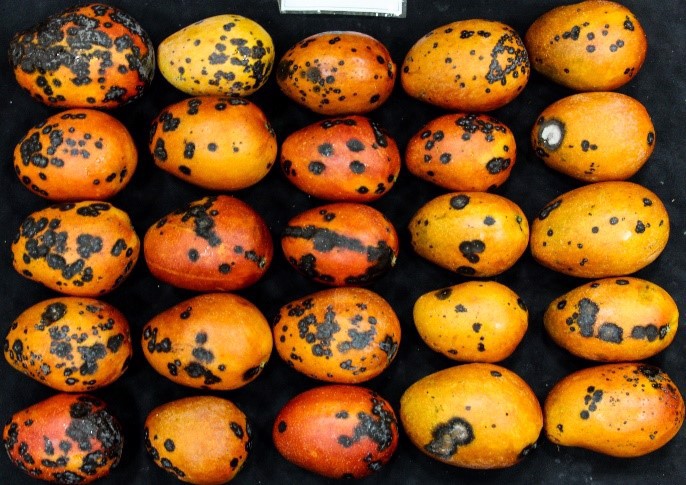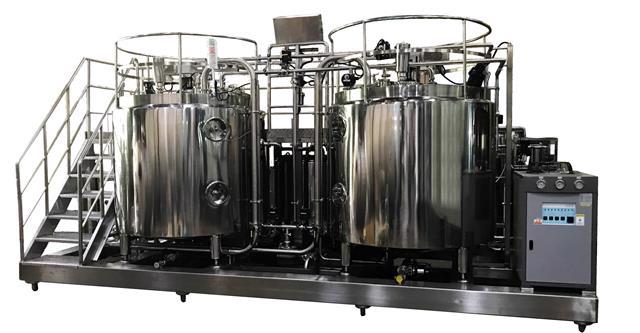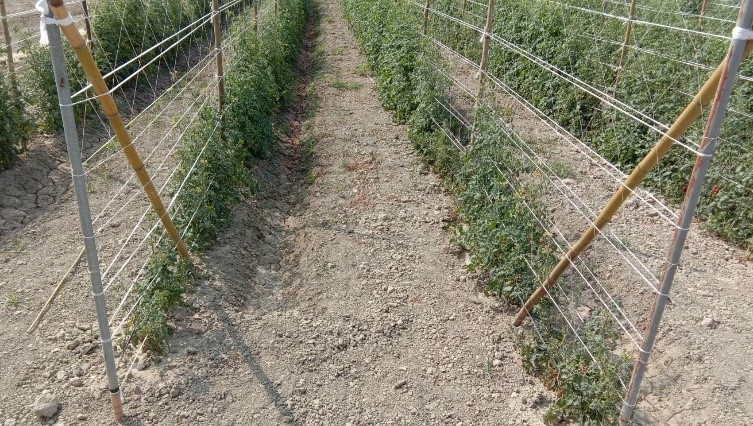
B&B e-Paper
B&B e-Paper
B&B E-Paper No.6
New fields technologies for adaptation to extreme climate change
In Taiwan, the climate is frequently affected by heavy rain or typhoons during summer, and crops were severely damaged during this season. Taichung District Agricultural Research and Extension Station (TDARES) has developed a field application technique of new cultivation media, a combination of organic mushroom substrate compost and liquid fertilizers. This technique can successfully increase the abilities of flood resistance, drought resistance and tolerance to temperature variation on litchi, guava, grapes, passion fruit, bitter gourd, loofah and kale. This technique can be used to increase the adaptation of crops to climate change and also reuse recyclable agricultural wastes.
A serial of abnormal weather conditions was observed in 2018-2019. After an abnormal warm winter in 2018, January and February 2019 have drought seasons and were followed by heavy rain full in March, April, July, and August 2019. The bitter gourd fields were flooded due to continuous heavy rain. In TDARES’s field experiment, the organic mushroom substrate compost was applied around the bitter gourd's stem basal and liquid fertilizers were also sprayed. None of the treated bitter gourds died after flooding. On the other hand, death rate of untreated bitter gourds after flooding reaches 40-80%. In addition, the treated bitter gourds could extend the harvest period by two months, and the yield of 0.1 hectare increased from 2,300 kg to 4,000 kg.
|
|
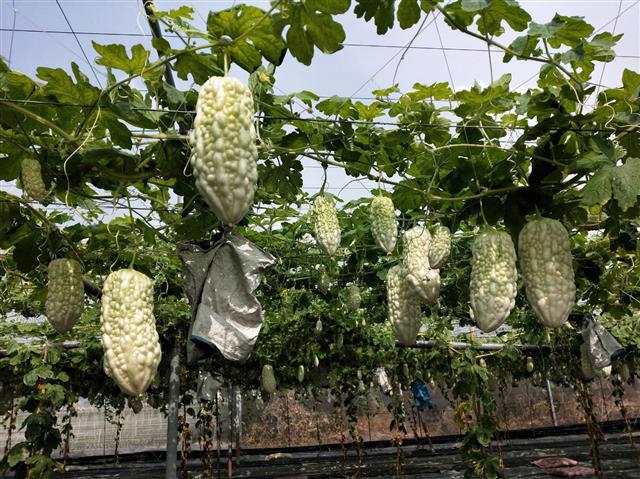 |
| Fig.1. Organic mushroom substrate compost was applied around the bitter gourd's stem basal. |
Fig. 2. The yield of bitter gourd increase by using the liquid fertilizers. |
The extreme weather condition also affect the yield of litchi in July 2019. In TDARES’s litchi field experiment, the liquid fertilizer with diatomaceous earth was fermented by Trichoderma asperelloides and then sprayed on litchi’s crowns and leaves, which increases the new leaf growth rate of litchi trees up to 70%-80% comparing to the untreated ones. The tree vigor of old litchi tree can restore after treatment and the flowering rate has reached 50%-80%, in the meantime, the control group was only 0-5%.
|
|
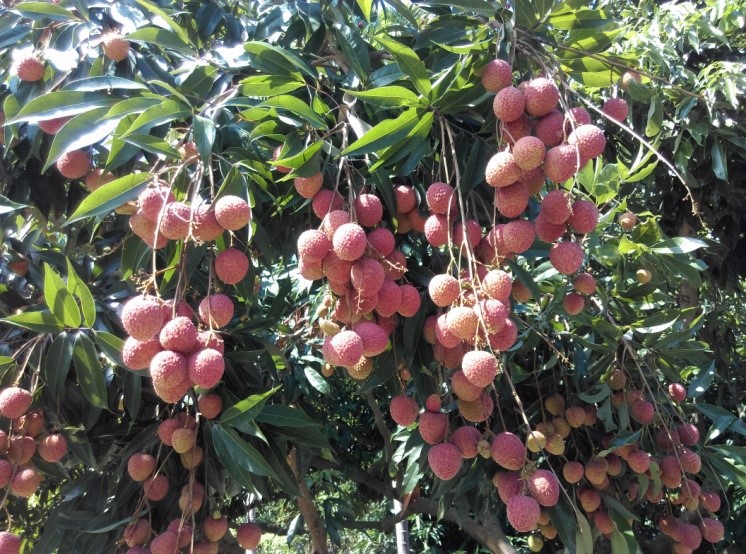 |
| Fig.3. Organic mushroom substrate compost was applied around the litchi's stem basal. |
Fig. 4. The yield of litchi increase by using the liquid fertilizers. |
Trouble-free for mango expert |
Mangoes are native to South Asia and one of the four major export agricultural products in Taiwan. The flavor of mango fruits has been a popular favorite of many people for years. Unfortunately, there are various mango diseases affected the quality of mango fruits, among them, the anthracnose and black spot are the major diseases in Taiwan. Once the symptoms appear on the fruit peel, it already loses its commercial value. In order to prevent the initial symptom development, farmers will contentiously apply chemical pesticides to control diseases before harvest. However, the maximum residue limits (MRLs) for pesticides in agricultural products must meet the standards of the export countries, result in the pesticide residues often became one of the non-tariff barriers to trade.
Taiwan has established a mango safety management system and diseases control technologies to reduce the use of chemical pesticides. Kaohsiung District Agricultural Research and Extension Station applies IPM strategies for mango, such as field sanitation, timely bagging, phosphorous acid, potassium hydroxide, and Bacillus subtilis KHY8. Bacillus subtilis KHY8 (1x109 cfu/mL), a 500X dilution can effectively reduce the disease incidences of mango bacterial black spot ( Xanthomonas campestris pv. manigiferaeindicae) and fungal anthracnose ( Colletotrichum gloeosporioides). IPM strategies of mango has reduced chemical pesticides usage to 53% in 2018, and to 42% in 2019. With these strategies, farmers can save 43% on diseases control expenses. The production of high-quality and pesticide residue-free mangoes might increase the success rate to expand foreign markets at higher prices, such as Japan and South Korea.
|
|
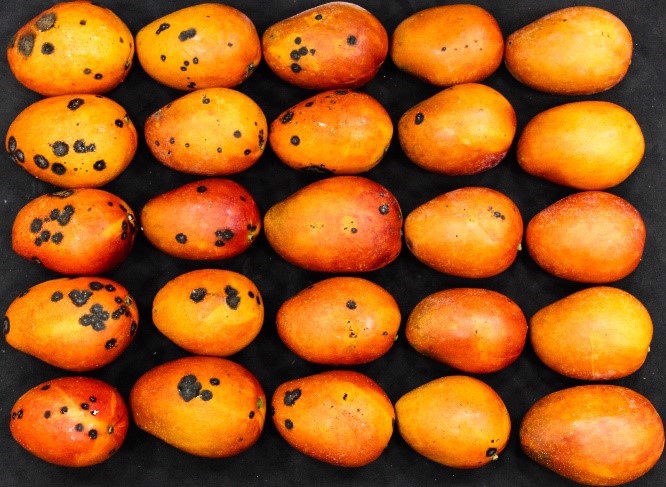 |
| Fig. 5. Control group (left) and treatment group (right) show a strong difference on black spot control by using B. subtillis KHY8. | |
Production of Commercial B&B Products using Atmospheric Fermentation Equipment |
In Taiwan, Advanced Green Biotechnology Inc. (AGB), launched in 2002, aims to research, design, and produce the probiotics for the environment. AGB's staffs are not only specialize in research, B&B production and market, but also in custom commercial B&B fermentation equipment design. Their products have exported to Japan, Thailand, Korea, Malaysia, Indonesia, Phillippe, Vietnam, and P. R. China.
Recently, AGB company has developed atmospheric fermentation equipment which can be placed in the farm for farmers ferment by themselves. In this case, the decline of microbial activity caused by long-term storage can be reduce, so do the transportation cost. The cost of producing 1.5 tons of B&B by atmospheric fermentation equipment is a lot lower than purchasing 1.5 tons of commercial B&B products.
|
|
|
| Fig. 6. Illustration of atmospheric fermentation equipment (2 tons per tank) |
Microalgae protein as a liquid organic fertilizer |
In Taiwan, Tai Jian Biotech Co., Ltd. have been developing their proprietary microalgae cell wall disruption technology, unique microalgae fermentation and extraction methods, which can be used to produce high nutritional value algae derived products. Alga Amine Fertilizer™ is a pH value 4.9 and liquid organic fertilizer product, which contains 60% animal and plant proteins, 16 amino acids (including 8 essential amino acids), Omega-3 (DHA, EPA), vitamin A~E, also is rich in minerals (Fe, Ca, Mg, P, Zn) and carotenoids.
Alga Amine Fertilizer ™ is an excellent formula for improving low-acid organic soils and promoting plant growth. This product received Taiwan's patent for soil improvement components and methods of promoting plant growth in 2017. In corn field test, the yield of Alga Amine FertilizerTM treatment group had 1.5 times more than untreated one. While applying to cherry tomatoes, the stem length had extend 43% compared to the untreated group.
|
|
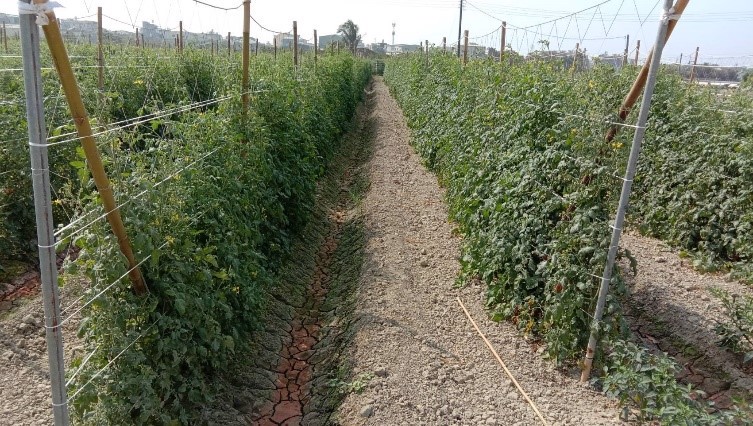 |
| Fig. 7. Spraying the Alga Amine Fertilizer ™ (500X dilution) on tomato leaves every 10 days for 2 months can effectively promote tomato plant growth (right) compare to control group (left). | |
Seek Now >> Taiwan Commercial Seed (http://tssb2b.tss.gov.tw)
